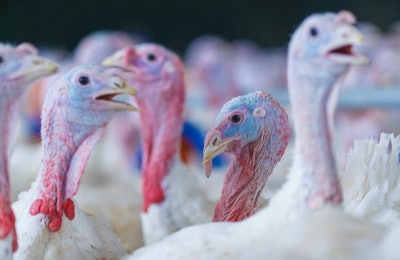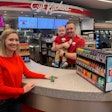
While turkey processing plants can provide a big economic boost to the areas where they operate, recruiting a company to build one in your state will not be an easy task, leaders from two top turkey companies say.
John Niemann, president of protein ingredients and international channel, Cargill Protein, and Dr. Kabel Robbins, staff veterinarian, Butterball, fielded questions about the turkey industry during the recent Kansas Ag Growth Summit, hosted by the Kansas Department of Agriculture.
While both companies have a presence in Kansas, neither has a turkey plant in the state. Cargill Protein, the third largest turkey company in the United States, has its corporate headquarters in Wichita, the state’s largest city. Butterball, the largest turkey company in the United States, has contract growers in southeast Kansas. It also has a feed mill in southeast Kansas, which serves Butterball growers in Kansas, Missouri and Arkansas.
But one audience member expressed a desire to have a turkey plant in the state, and asked Niemann and Robbins what would be the potential barriers involved that might prevent that from happening.
Turkey demand must increase
Niemann said the biggest roadblock presently is the state of the turkey industry and current demand levels.
While Niemann said the demand for turkey has increased during the COVID-19 pandemic, that boost may not necessarily last.
“In the grand scheme of a 10-year trek on turkey demand, turkey is about 16 pounds per person on a per capita basis on an annual basis, and most of that is at Thanksgiving and deli and ground turkey,” said Niemann.
While Niemann noted that the turkey industry is working hard to grow the span of how and when turkey is consumed, construction of new plants in the near term is unlikely.
“Probably the only way that (construction of a new plant) would happen is if a large processor or regional processor was looking to replace existing assets,” said Niemann.
Robbins agreed with Niemann’s assessment.
“There’s a lot of turkey processing capacity that’s a little underutilized across the United States at the current moment, so I certainly think that’ll be filled up before anyone looks at expansion,” said Robbins.
Available workforce and community support needed
Robbins also pointed out that existing turkey companies would be more likely to “stick a little closer to home with some of their assets.”
But if a company is to look at new geographical areas, one of the biggest factors is an available workforce and/or an attractive place for workers to relocate, Niemann said.
“Most of these plants have to be in an area today where there is a larger labor pool, and if you think about from a labor standpoint, it's an important balance between being near a larger population for applicant flow versus in a rural area,” said Niemann.
Niemann said during the 1960s through the 1980s, many meat and poultry plants were built in rural areas, such as Dodge City, Kansas, where Cargill has a beef plant.
Niemann said recruiting workers to Dodge City “can be a challenge at times,” which is why it is important to have the support and assistance through partnerships with state and local governments and entities.
Josh Roe, vice president of market development for Kansas Corn, expanded on the importance of community support.
“The ag groups, the local business groups and just the community organizations all (need to be) behind a project like that, and just be willing to bring it in,” said Roe. “No matter what a project is, there’s always going to be some opposition, but if you have those community champions all on board, that especially encompasses the major industries, I feel that is vital.”


















